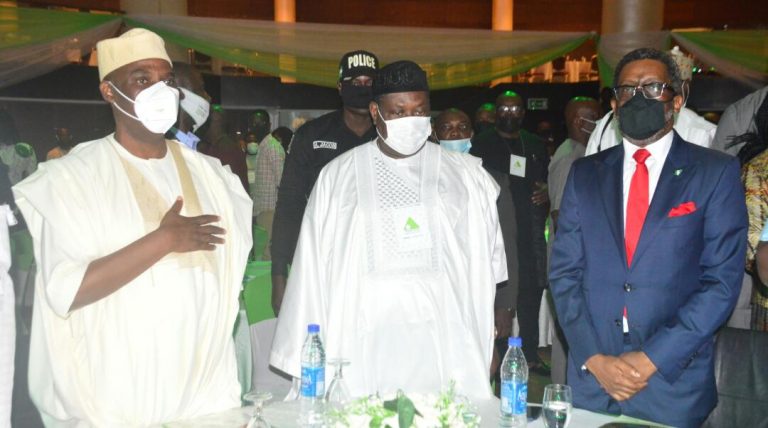The Federal Government will soon acquire a central monitoring system (CMS) for the country’s gaming industry for better performance and enhanced revenue generation.
The Minister of Special Duties and Intergovernmental Affairs, Sen. George Akume, made this known at the opening of the maiden National Gaming Conference organised by the National Lottery Regulatory Commission(NLRC) on Wednesday in Lagos.
The theme of the two-day conference was “Repositioning the gaming industry for better performance and enhanced revenue generation for stakeholders in the 21st century”.
Akume said the acquisition of the CMS, which was already captured in the 2021 Appropriation Act, would enable the Commission and its sister agency, the National Lottery Trust Fund, to perform maximally in their regulatory functions and provision of lottery good causes to Nigeria.
“The CMS is desperately desirable to enable the government to block leakages being experienced in the gaming industry as well as eliminate discrepancies often observed from the books of some operators.
“This will undoubtedly entrench transparency and accountability in the industry, thereby making things a lot easier for all stakeholders,” the minister said.
Speaking on the Nigerian economy, Akume noted that the COVID-19 crisis further exacerbated the economic slowdown which arose the urgent need for government to widen and strengthen its revenue streams.
“The federal government, as a matter of urgency, began to look beyond oil and gas for revenue generation to sustain the Nigerian economy.
“We all know that poverty is a primary cause of youth unemployment, civil agitation and insecurity, hence significant funds are needed to confront these problems,” Akume said.
The noted that the Nigerian gaming industry was well-positioned to play a key role in funding the government’s poverty alleviation programmes and other public good causes.
Akume said this informed government most pressing need to widen the economy and enhance available revenue streams.
“As we may all be aware, the Lottery Commission was created in 2005 through the Act of the National Assembly to enable the government to properly organise the operation of Lottery business in Nigeria.
“Several stakeholders have made efforts to generate revenue for the government through lottery, however, it is sad to note that lottery revenues continue to fall short of industry potentials due to conflict of interests,” he said.
According to him, reports indicate that Nigeria’s gaming industry, including international stakeholders, in 2019 grossed more than N250 billion, noting that revenues to government did not exceed one billion naira that same year.
In his welcome address, Mr Lanre Gbajabiamila, Director-General of NLRC, said that the commission would be working with relevant industry stakeholders and government officials on the amendment of existing lottery laws.
Gbajabiamila said the amendment would provide a legislative and regulatory framework that would best serve the industry.
“It is common knowledge that the industry has evolved and adopted technology to optimise so much that the extant laws do not reflect the reality or trend of the Nigerian gaming industry.
“We are optimistic that before the end of the year, the National Gaming Bill 2021 will be passed into law,” he said.
Gbajabiamila also noted that to reposition the gaming industry for better performance, stakeholders could not afford to work at cross purposes, adding that it was necessary to work towards a common cause. (NAN)
